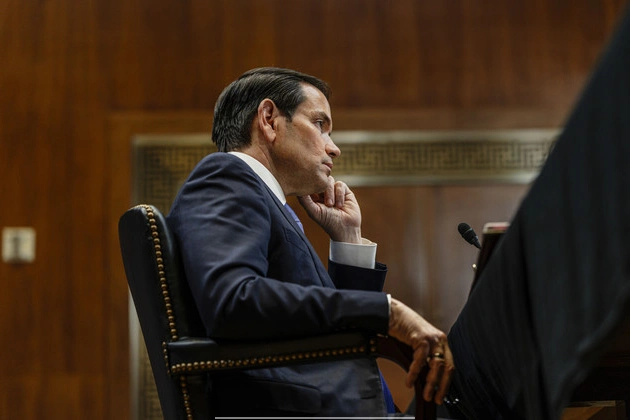
Democrats are questioning the accuracy of Marco Rubio’s statements on foreign aid reductions in light of ongoing concerns about the President’s Emergency Plan for AIDS Relief (PEPFAR). The Trump administration’s recent cuts to PEPFAR funding, overseen by Elon Musk and the Department of Government Efficiency, have sparked a heated debate over the program’s efficacy.
Rubio’s Claims and Democratic Response
Despite assertions by Secretary of State Marco Rubio that PEPFAR remains largely operational, Democrats remain skeptical. Rubio’s repeated references to an 85% operational rate for PEPFAR have been met with demands for detailed evidence to support this figure. Senator Brian Schatz dismissed Rubio’s claims as unfounded, emphasizing the critical role that PEPFAR plays in global health initiatives.
During budget hearings, Rubio defended the 15% funding cut by citing issues in specific programs, such as fraud in Namibia and conflict in Sudan. However, critics argue that these incidents may not be directly linked to PEPFAR activities, raising concerns about the rationale behind the budget reductions.
Transparency and Accountability
The lack of clarity surrounding PEPFAR’s current operational status has led to frustration among stakeholders. Calls for transparency from the State Department have gone unanswered, fueling doubts about the administration’s handling of global health programs.
Activists in the HIV prevention and care sector have expressed alarm at the potential impact of funding cuts on life-saving services. The uncertainty surrounding PEPFAR’s future has further complicated budget discussions in Congress, with conflicting reports on the administration’s spending priorities.
Looking Ahead
As Congress deliberates on future funding for PEPFAR and other global health initiatives, the need for clarity and accountability remains paramount. The discrepancies in reported operational figures and the impact of budget reductions on critical services underscore the importance of comprehensive oversight and evaluation.
Amidst the ongoing debate, stakeholders continue to advocate for the preservation of essential HIV/AIDS prevention and treatment programs. The fate of PEPFAR and its role in international health efforts hang in the balance as lawmakers grapple with complex budgetary decisions.











